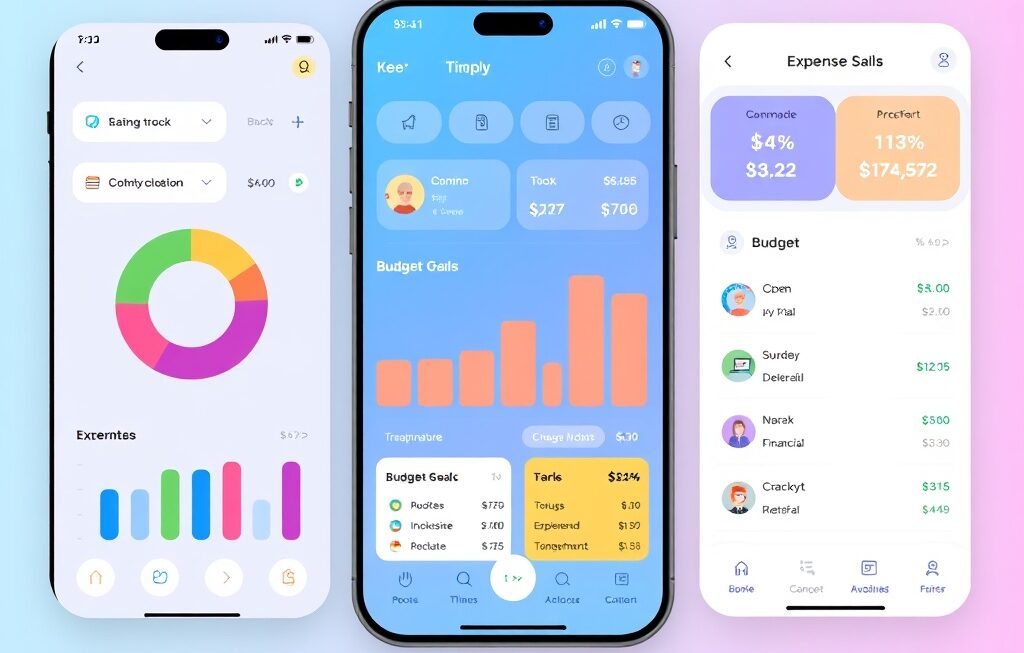Building a Strong Financial Foundation in 2025
Managing personal finances has never been more important. In a rapidly changing economic environment — with inflation fluctuations, digital banking, and evolving job markets — building smart money habits for 2025 is the key to achieving financial stability and long-term freedom.
More than ever, people are realizing that earning money is only half the equation; the other half is how effectively you manage, save, and grow it. Developing healthy financial habits not only reduces stress but also ensures resilience against future uncertainties.
This article will guide you through the essential money habits that can transform your financial life — no matter your income or background.
Why Financial Habits Matter More Than Income
Many people believe that financial success depends solely on how much you earn. However, behavioral studies and real-life examples prove that how you handle your money matters even more.
Even high-income earners can struggle financially if they overspend or lack a plan. Conversely, those with moderate incomes who consistently budget, save, and invest often build significant wealth over time.
Financial habits shape your mindset — they determine how you react to expenses, plan for the future, and adapt to life’s challenges.
1. Budgeting: The Core of Financial Success
Creating and maintaining a budget is one of the most fundamental smart money habits. A clear budget gives you visibility over your income and expenses, allowing you to make informed decisions and avoid unnecessary debt.
Steps to Create a Practical Budget
- Track every expense for at least one month using an app or spreadsheet.
- Categorize your spending into essentials (housing, food, bills) and non-essentials (entertainment, dining out).
- Set financial goals such as paying off debt or saving for a major purchase.
- Review regularly — your budget should adapt as your lifestyle changes.
A well-maintained budget acts as your personal roadmap to financial discipline and clarity.
2. Emergency Fund: Your Financial Safety Net
Unexpected expenses — from car repairs to medical bills — can derail your finances if you’re unprepared. Building an emergency fund is a top priority for financial health.
Experts recommend saving at least three to six months of living expenses in a liquid, easily accessible account.
This fund acts as a buffer against financial shocks, ensuring that you won’t need to rely on high-interest credit cards or loans during tough times.
Start small if necessary. Even setting aside a small percentage of each paycheck can gradually build a safety net over time.
3. Debt Management: Taking Control of What You Owe
Debt can be both a tool and a trap. Smart debt management is about understanding the difference between “good” and “bad” debt.
- Good debt (such as student loans or mortgages) can help you build long-term value.
- Bad debt (like high-interest credit cards) erodes your wealth and limits your freedom.
Strategies to Manage Debt Effectively
- List all your debts with their interest rates and balances.
- Prioritize high-interest debt first (the “avalanche” method).
- Consider consolidation if it lowers your overall rate.
- Avoid adding new debt while repaying existing ones.
In 2025, as interest rates remain volatile, disciplined debt management is crucial for financial sustainability.
4. Saving and Investing Consistently
One of the most powerful money habits is paying yourself first. This means setting aside a portion of your income for savings and investments before spending on anything else.
Recommended Saving Guidelines
- 20% of income toward savings and investments (if possible).
- 10% for short-term goals (vacations, new gadgets).
- 10% or more for retirement and long-term growth.
Investing doesn’t require a large amount of capital — consistency matters more than size. Start small with index funds, ETFs, or retirement accounts. Over time, compound interest turns small contributions into significant wealth.
5. Automating Your Finances
Automation simplifies financial discipline. By setting up automatic transfers to your savings, bills, and investment accounts, you remove the temptation to spend impulsively.
Automatic systems ensure:
- Bills are always paid on time.
- Savings grow consistently.
- Investments continue without emotional interference.
This “set it and forget it” approach builds wealth effortlessly and prevents financial procrastination.
6. Tracking and Reviewing Progress Regularly
Financial management is not a one-time task — it’s a continuous process. Regularly reviewing your progress ensures you stay aligned with your goals.
Every few months:
- Review spending patterns.
- Reevaluate your goals and priorities.
- Adjust your savings rate if your income changes.
Small, consistent improvements compound over time, leading to major long-term results.
7. Building Good Credit
In today’s economy, your credit score is a vital part of your financial health. It influences loan approvals, interest rates, and even job opportunities.
Tips to Maintain Excellent Credit
- Always pay bills on time.
- Keep credit utilization below 30%.
- Avoid opening multiple new accounts at once.
- Check your credit report regularly for errors.
Good credit gives you access to better financial opportunities and lower borrowing costs.
8. Financial Literacy: The Key to Empowerment
Financial literacy empowers you to make informed decisions about saving, investing, and spending. In 2025, with fintech tools and online resources readily available, there’s no excuse for financial ignorance.
Ways to Improve Financial Knowledge
- Read books or listen to podcasts about personal finance.
- Follow reputable financial educators on YouTube or social media.
- Take advantage of free financial planning resources offered by banks or apps.
Knowledge is the foundation of smart decision-making. The more you understand about money, the more control you have over your future.
9. Mindset and Behavior: The Hidden Side of Financial Success
Financial success is as much about mindset as it is about money management. Developing a growth-oriented mindset helps you see challenges as opportunities rather than setbacks.
Common mindset shifts include:
- Viewing savings as freedom, not restriction.
- Seeing budgeting as empowerment, not limitation.
- Treating financial mistakes as lessons, not failures.
A positive relationship with money helps you stay motivated and consistent, even when results take time.
10. Planning for Long-Term Financial Goals
Short-term habits are powerful, but long-term vision sustains wealth. Create clear financial goals for the next 5, 10, and 20 years.
Examples:
- Buy a home by 2030.
- Achieve early retirement by 50.
- Build a diversified investment portfolio worth $1 million.
Break big goals into smaller, actionable milestones. Track progress, celebrate achievements, and adjust when necessary.
Tools and Apps to Simplify Personal Finance in 2025
Technology has made managing money easier than ever. Here are some recommended tools:
- Mint or YNAB (You Need a Budget): For budgeting and tracking expenses.
- Acorns or Betterment: For automated investing.
- Credit Karma: To monitor your credit score.
- Google Sheets: For personalized tracking and goal setting.
By combining smart money habits with technology, you can streamline your financial management and stay consistent.

In Summary
Building smart money habits for 2025 is not about radical overnight change — it’s about steady progress and discipline. Whether you’re earning a modest salary or running a business, mastering the basics of budgeting, saving, debt control, and investing will help you create lasting financial stability.
In a world filled with financial uncertainty, the most valuable investment you can make is in yourself — your discipline, knowledge, and habits.
Remember: financial freedom isn’t just about having more money; it’s about having control, peace of mind, and the ability to live life on your own terms.



